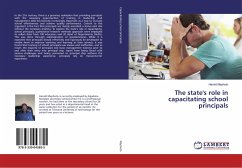As a result of California's fiscal crisis in 2011-12 the State's community colleges experienced substantial cuts to their budgets. Multiple reductions in funding forced colleges to scale back their course offerings, reduce personnel, and limit student services. This lack of funding created a dislodging event that brought underlying issues to the surface and created new problems for leaders navigating this environment. This study examines presidential leadership in the midst of such conditions and documents the various challenges California community colleges face during an economic downturn. The threat to the community college mission, prompted by the fiscal crisis and exacerbated by legislative boundaries, collective bargaining, and accreditation standards, is explored through the experiences of community college leaders. This study also identifies how the fiscal crisis is changing what was once an exemplary approach to securing democracy through the education of a mass populousand how those changes are negatively impacting the role of the California community college president.
Bitte wählen Sie Ihr Anliegen aus.
Rechnungen
Retourenschein anfordern
Bestellstatus
Storno








